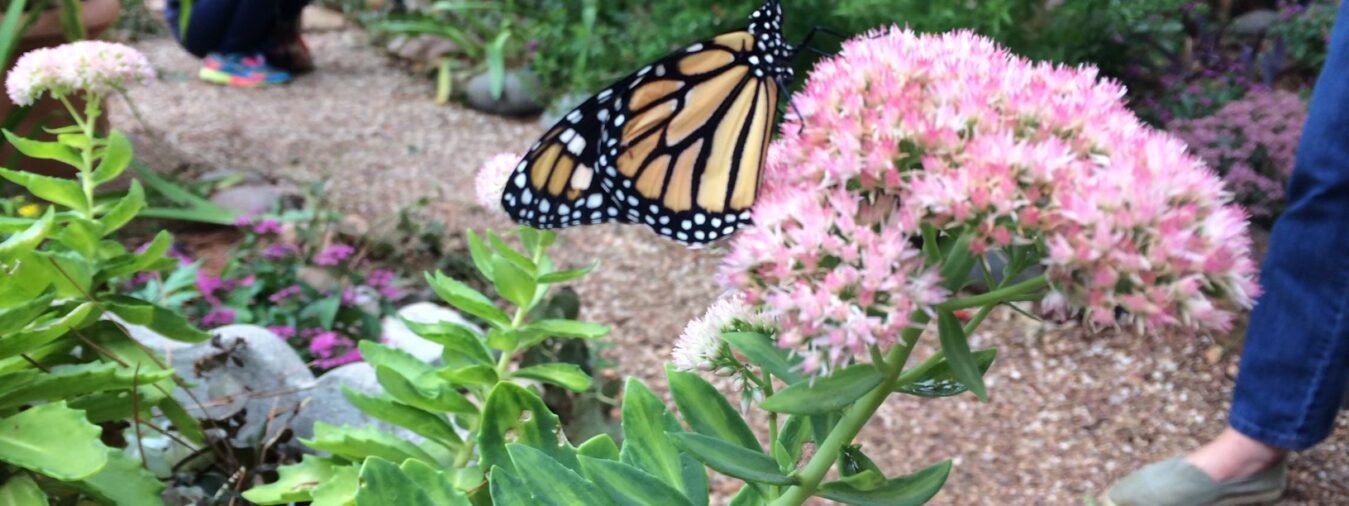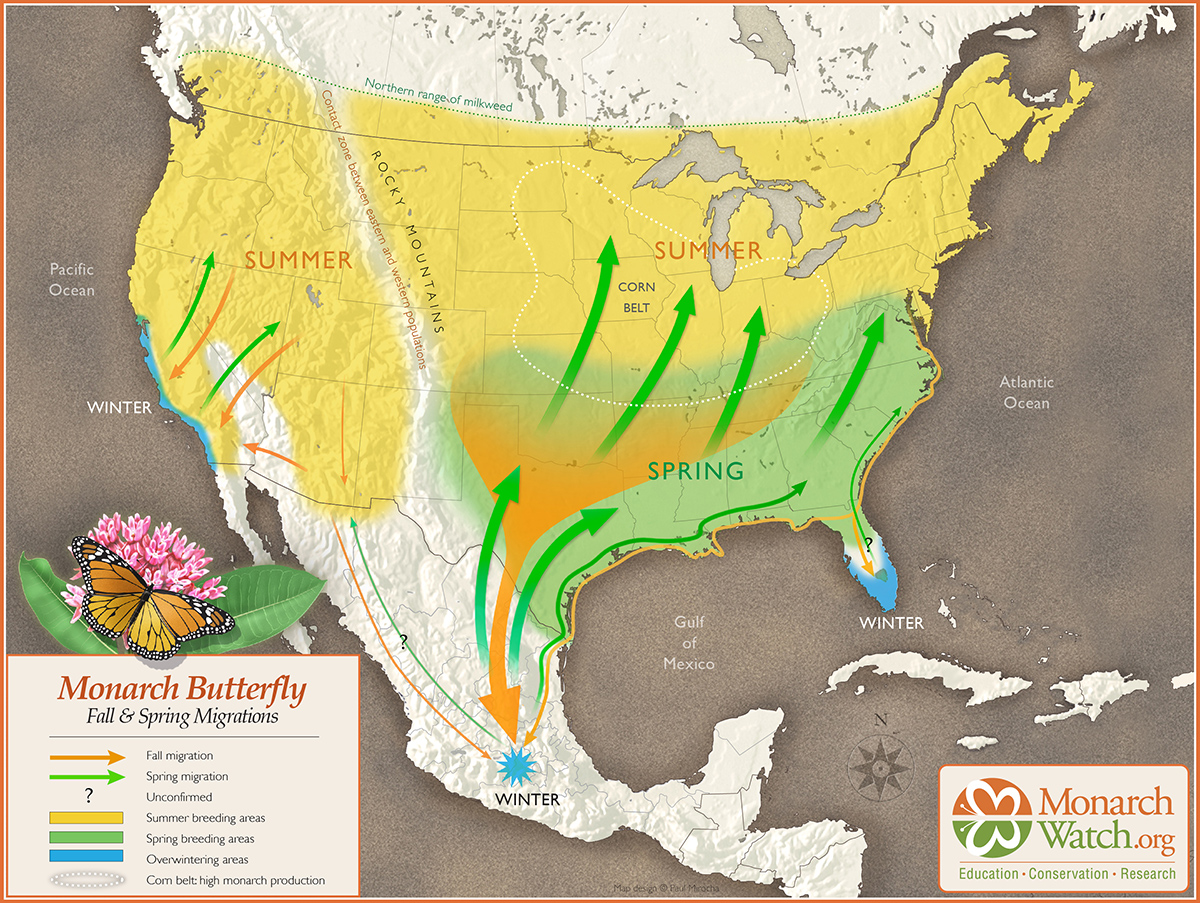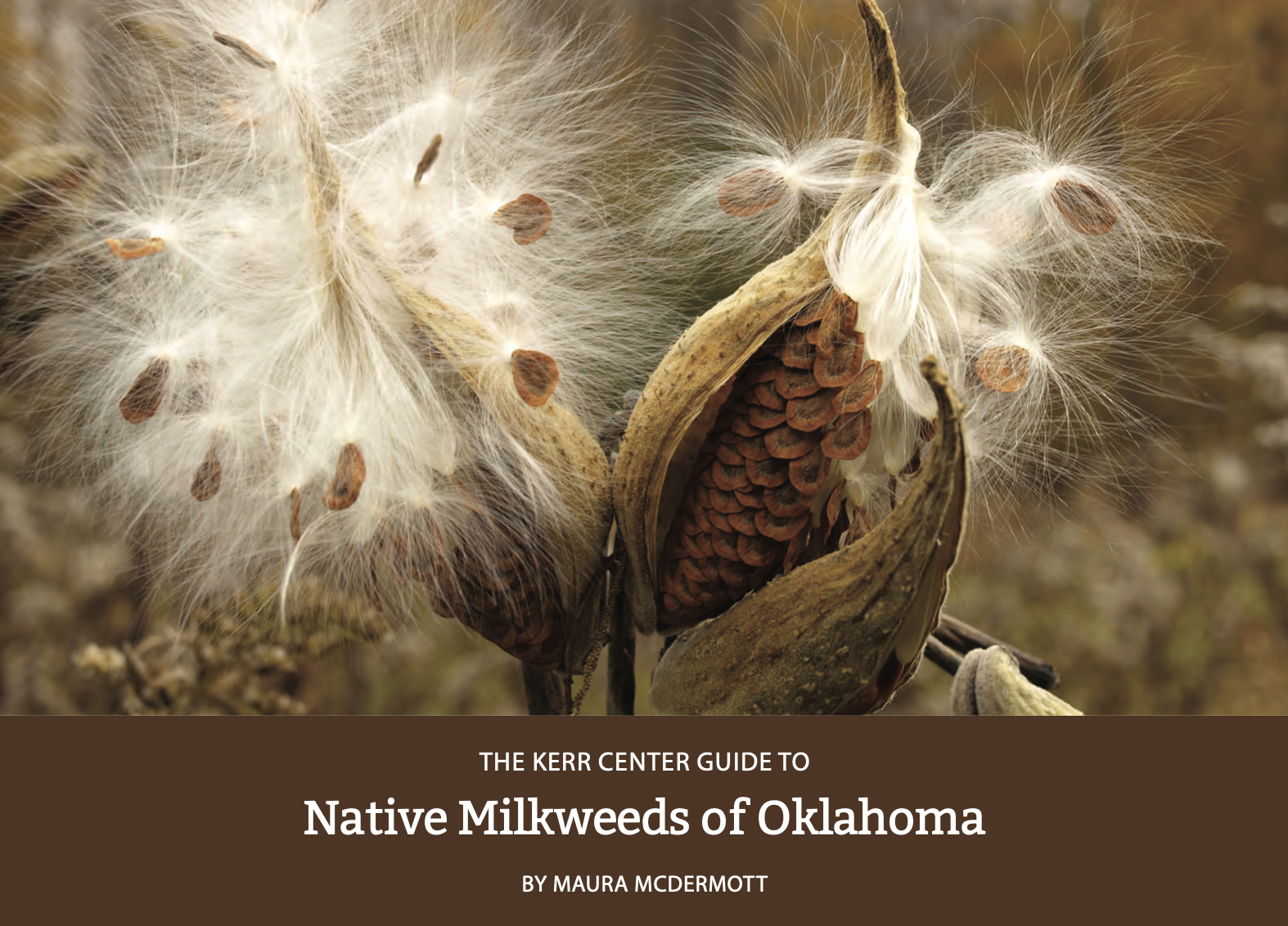
They’re Here! Mapping the 2023 Monarch Migration
Spring has sprung in Oklahoma! The first adult monarch butterflies of 2023 were reported on Wednesday, March 22, in Oklahoma City according to Journey North, a citizen science reporting tool. Sightings are expected to increase exponentially as the migration continues. From Claremore to Cache and everywhere in between, these winged wonders will continue their journey into the northern United States and Canada, laying plenty of eggs along the way.

This year, overwintering monarch populations in Mexico decreased by 22%. Though this isn’t the result we were hoping for, persistent drought conditions could’ve made it a whole lot worse. The good news is that each of us can contribute to the success of the 2023 fall migration! Whether you’re a veteran gardener with acres to spare or a brand-new conservationist with limited space, the opportunities to support future generations of monarchs are plentiful, starting with milkweed.
If you haven’t already, now is the perfect time to get milkweed plants in the ground. Migrating monarchs depend heavily on milkweed, which is the sole source of nutrition for caterpillars through metamorphosis. There are several varieties of milkweed suitable for our soil! Here's a handy look at some of your options, available to download courtesy of The Kerr Center for Sustainable Agriculture:
The pollinator party doesn’t have to stop there! Monarchs and other pollinators need dependable sources of nectar from native wildflowers for their survival. Without our pollinators, the global food supply would be in serious jeopardy. Plus, native plants improve soil quality and prevent runoff and erosion. That’s a win for people and monarchs alike! Take action today by:
- visiting a local nursery and asking for chemical-free native milkweed and wildflowers
- tracking the migration on Journey North and logging your sightings
- using pollinator-safe lawn care products and practices
Together, we'll plant the path for pollinators and ensure thriving monarch populations for generations to come!
Ready to do your part as a citizen scientist? Our friends at Journey North have everything you need to get started! Learn how to report your monarch findings here.

